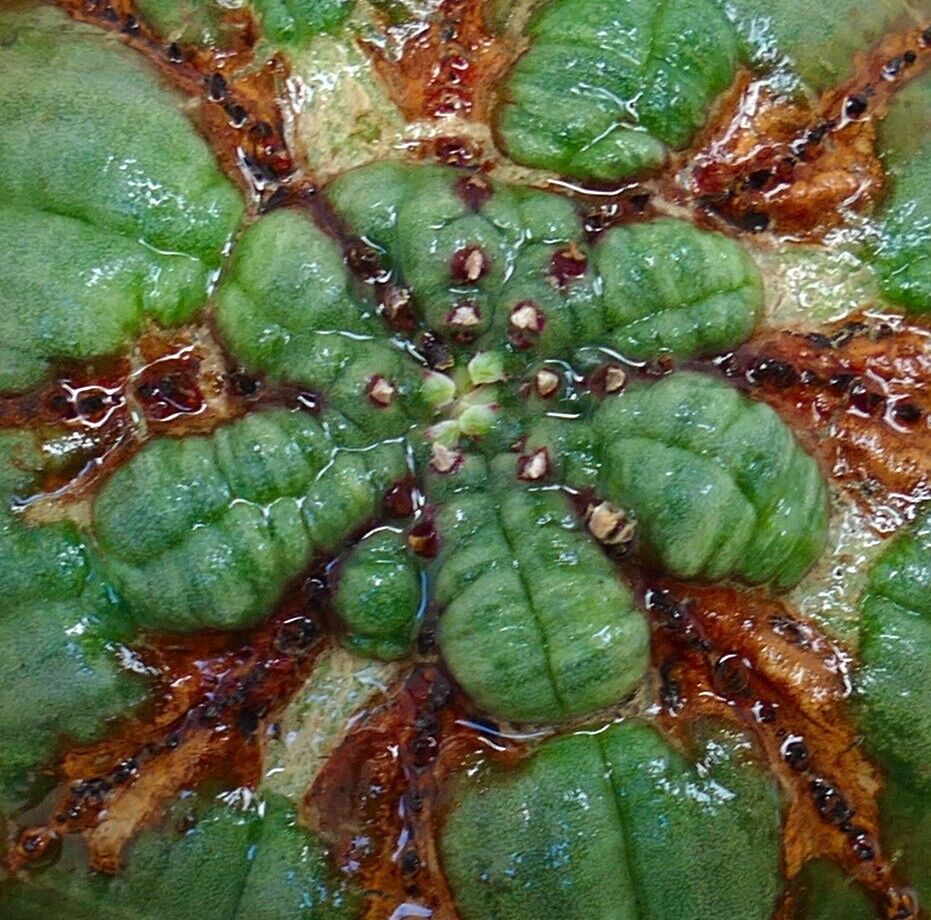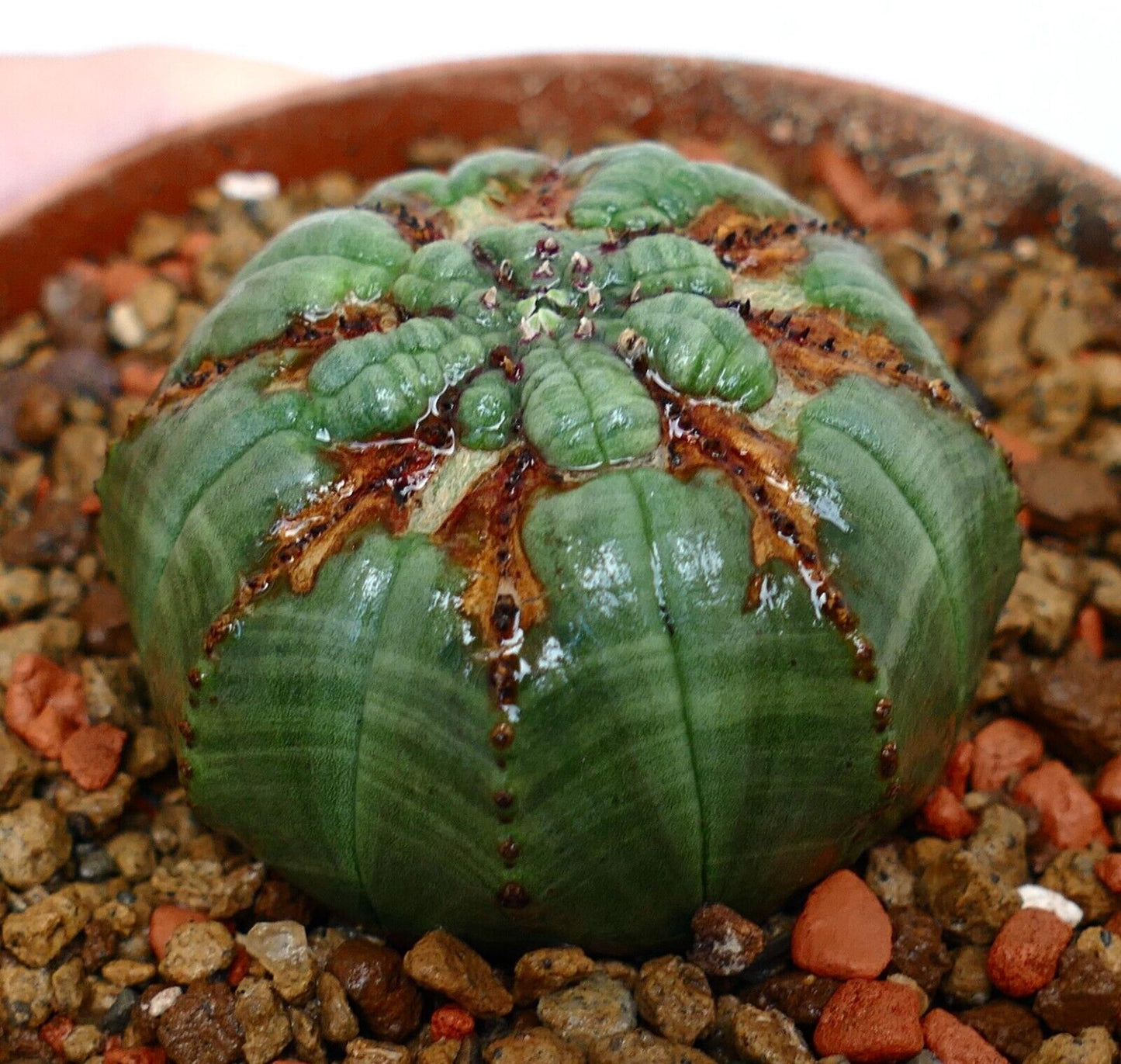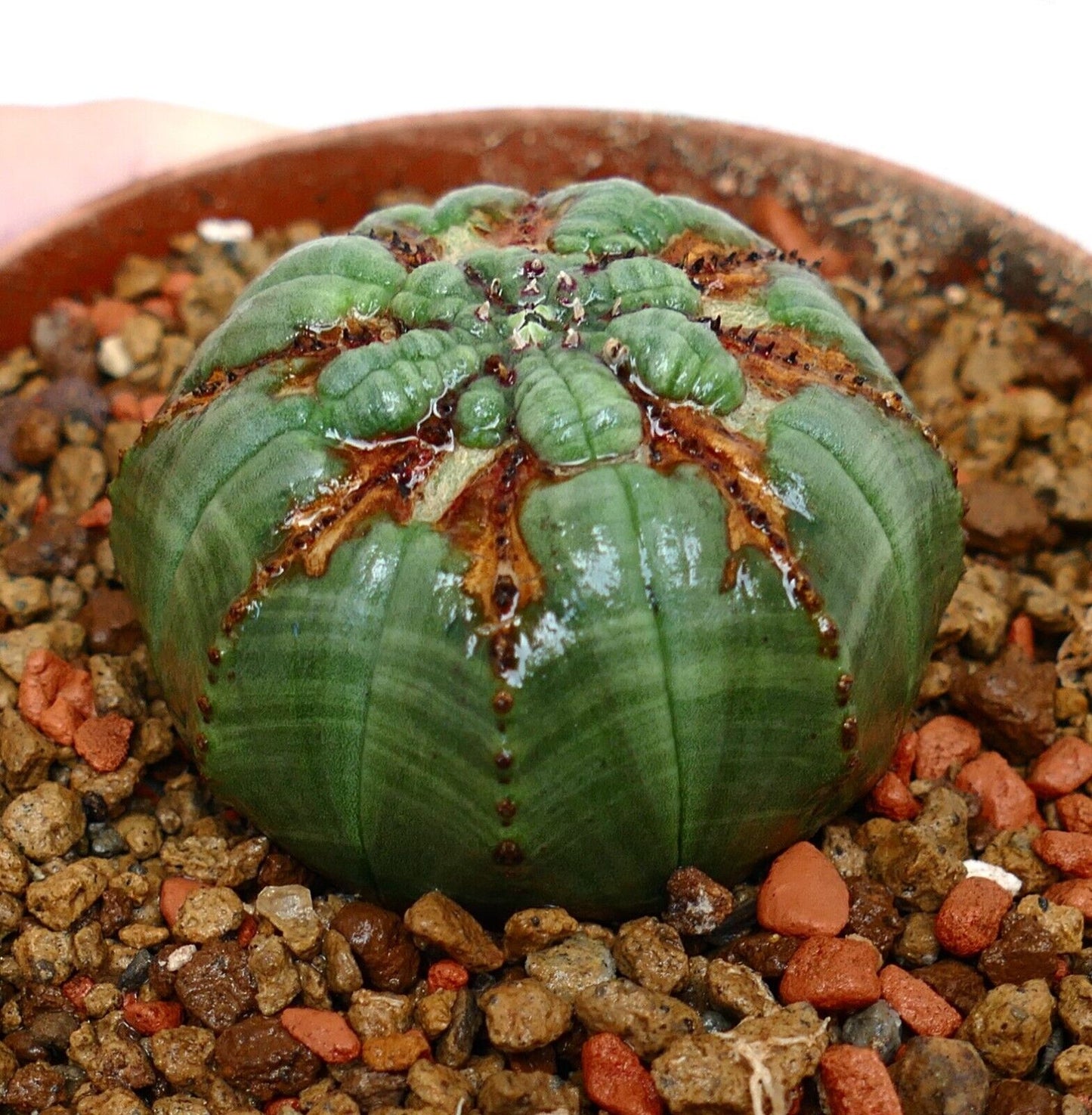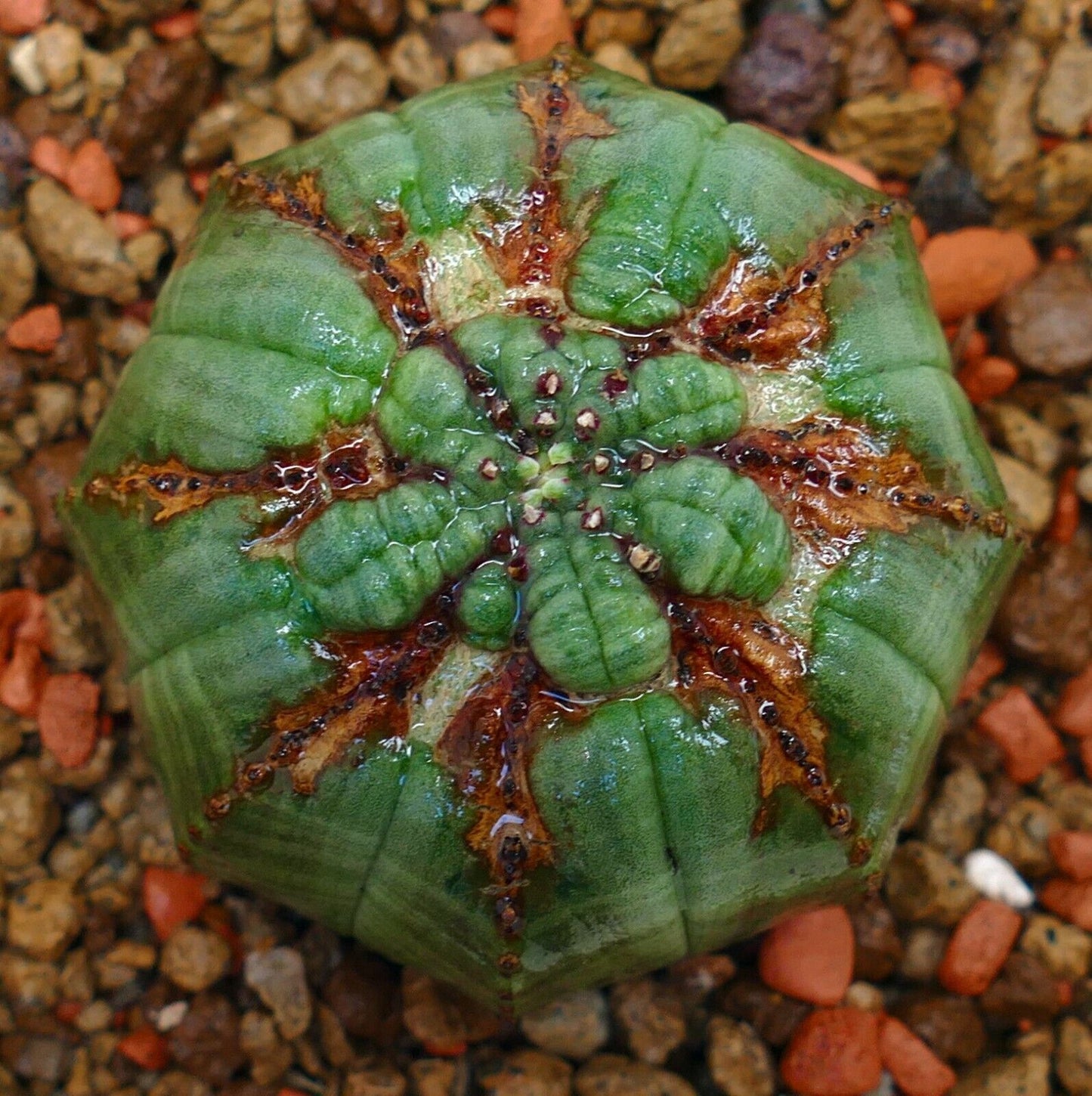Euphorbia obesa PSK73
Euphorbia obesa PSK73
Couldn't load pickup availability
Product Description
Euphorbia obesa, commonly known as the "Baseball Plant" or "Baseball Cactus," is a fascinating and distinctive succulent native to South Africa. Its unique appearance has earned it its common name, as it resembles a baseball or a spherical shape. Here's a short description and cultivation indications for Euphorbia obesa:
Description: Euphorbia obesa is a small, globular succulent that typically reaches a height of 6 to 8 inches (15 to 20 cm) and a diameter of 4 to 6 inches (10 to 15 cm). Its striking appearance features a greenish-blue, ribbed surface adorned with vertical stripes of lighter green. The plant lacks traditional leaves but has small, ephemeral leaves that appear and disappear quickly. Instead, photosynthesis primarily occurs in the green stem, which is adapted to store water, making it an excellent choice for arid or desert-like environments.
Cultivation:
-
Light: Euphorbia obesa thrives in bright, indirect sunlight. Place it on a south or east-facing windowsill, or use a grow light if you're growing it indoors.
-
Temperature: Maintain a warm climate for your Euphorbia obesa. They prefer temperatures between 70-100°F (21-38°C) during the growing season and should be protected from frost.
-
Soil: Use a well-draining cactus or succulent mix to plant your Euphorbia obesa. Good drainage is crucial to prevent root rot.
-
Watering: Allow the soil to dry out completely between waterings. Water sparingly, typically every 2-4 weeks during the growing season (spring and summer) and reduce watering in the dormant season (fall and winter).
-
Potting: Repot your Euphorbia obesa only when it outgrows its container, typically every 2-3 years. Use a slightly larger pot with good drainage.
-
Fertilization: Feed your plant with a diluted, balanced, liquid fertilizer during the growing season, about once a month.
-
Pests and Diseases: Keep an eye out for mealybugs and scale insects, which can infest Euphorbia obesa. Remove them by hand or use a suitable insecticide if necessary.
-
Handling: Handle Euphorbia obesa with care, as it contains a white latex sap that can be irritating to the skin and toxic if ingested. Wear gloves when working with this plant.
Euphorbia obesa is a visually striking and low-maintenance succulent that can be a great addition to your collection of indoor or outdoor plants. Just remember to provide it with the right conditions, and it will reward you with its unique appearance and longevity.
SKU:BA-2504-S
Cultivation
Cultivation
Info and Disclaimers
Info and Disclaimers
Plant height:
Pot diameter:
Picture taken on:








